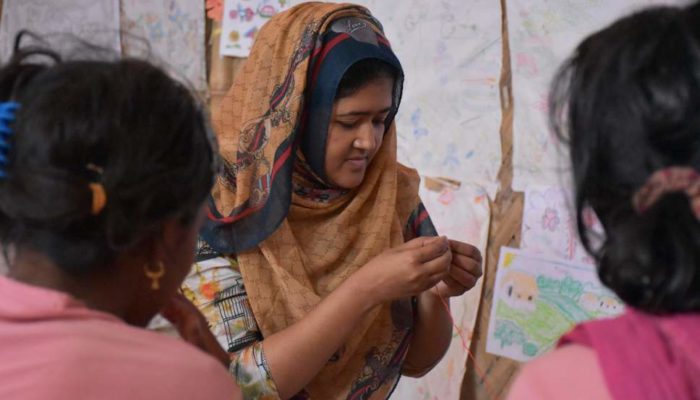‘Whose voice is louder?’ Safe spaces as responses to gender-based violence in refugee settings
This post forms part of our series in showcasing abstracts of presentations featured at our annual postgraduate interdisciplinary conference on refugee and forced migration research, hosted in November 2018 at The University of Melbourne.
HALA NASR
Women-only safe spaces are increasingly recommended and implemented as part of gender-based violence responses in humanitarian and development settings, despite little evidence supporting best practices. The framing of safe spaces is an important point of interrogation, as it impacts the (im)possibilities for refugee women who are accessing them, particularly those who have experienced gender-based violence.
In this presentation, I discuss the academic and grey literature on safe spaces in development and humanitarian settings. I then present five main interconnected themes underlying how safe spaces are framed and approached within this literature: physical separation, empowerment, connection, treatment, and transformation of gendered social norms. I conclude by arguing that the voices of refugee women accessing safe spaces are, however, absent from the conversation and future research must address this gap to ensure safe spaces develop to meet the needs and aspirations of refugee women.
Hala Nasr is a gender-based violence responder and advocate, whose past work in Aotearoa/New Zealand has included working within a feminist women’s refuge supporting African, Middle Eastern and African migrant and refugee women survivors of domestic and family violence, as well as implementing the NZ Defence Force’s Operation Respect – a project geared to ending sexual violence in the military – in the Navy, Airforce and Army bases in the Northern region. She was recently awarded the University of Auckland’s Top 40 Under 40 award to recognise her contributions in this space. She is currently conducting her PhD at the University of Melbourne with a focus on safe space responses to gender-based violence in refugee settings as part of a multi-country project SEREDA.
Image Credit: The Independent (2017), Jessica Wanless: https://www.independent.co.uk/news/world/asia/rohingya-refugee-camps-safe-spaces-traumatised-women-girls-myanmar-burma-a8406746.html
